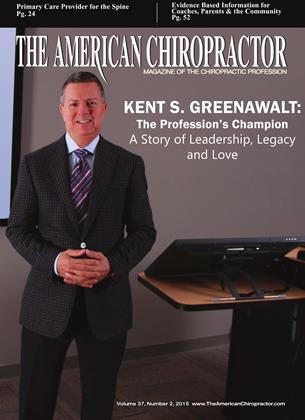CREATING THE PERFECT CHILD
CHILDREN
Ogi Ressel
“Honey, can you pick up Billy after school and drive him to soccer? I’ll take Jilly to her piano lessons and meet you at 5:00 at the Big M for a quick bite to eat. Don’t forget to take Billy for his violin instruction, and I’ll pick him up from his math tutor at 7:00. We have to make sure that he completes his homework this time because that grump of a teacher always picks on him for falling asleep in class. And he has to finish because he has the tri-county playoffs tomorrow and needs his rest.”
As bizarre, and common, as the above situation may seem, you will be shocked to find that many parents reading this might say to themselves, “So ... what’s his point?” And that’s my point.
Anumber of years ago, it was fashionable for children, especially girls, to go for piano lessons and violin lessons, and for boys to learn poetry, etc. They were to be gentlemen and ladies. They were gloomed to be cultured, pampered, and manicured in all of the proper social graces—a perfect reflection of father and mother, who were a perfect reflection of their parents.
How many of you have noticed that life has changed somewhat since those times?
Let me be frank: What aie we doing?
All parents want the best for their children, but stop and think
a moment. Is the merry-go-round you have your child on the best for him or her? If asked, your child would probably answer, “I’d like to stay home and play with you, Dad.” In our overstimulated, rushed society, that simple basic wish ahnost seems like a crime. But think for a moment: What does this do to the home environment? Mom and Dad aie tired because both have worked all day, and so have then children. Tempers aie a bit flayed, and in all honesty, Mom and Dad just want to have Billy and Jilly in bed asleep so they can have a breather.
Is this the reason to have children? Sometimes it is actually okay to just be home and do nothing—help Dad with the garden or plant flowers, help Mom bake cookies or read together, maybe throw the ball, or simply veg out in front of the TV and watch a movie together! Listen, the list is limited only by the extent of imagination.
When my son was nine, he was enrolled in a junior baseball team and played third base. All the parents would watch then kids play after school and cheer, and I remember one man rooting for his son, “Bobbie, get him. Don’t let him sneak past you. Kill him!” The father was shaking in anger and I reminded him that it was just a game. He told me to “@#&% off!” Doorknob! I wish I could tell you that he was an exception, but no, most of the parents watching had similar outpourings of enthusiasm. It ahnost felt as if they were reliving then childhoods through their children—their kids were pawns in some retro power struggle. Now, I have to wonder if the
pace of the life they ai e living teaches their children the lessons that we all want them to learn.
As a pediatric chiropractor and father, I feel that we ai e creating a generation of overstressed kids—children who need constant stimulation to live. Kids who afraid to fail. Kids who aie afraid to succeed. Kids who feel pressured to be mirror images of their parents. Kids who may resort to psychotropic medications to maintain some sense of sanity when they become young adults. Aie the piano lessons worth that?
It's something to think about.
Dr. Ogi is a Practice Coach and teaches the Practice Evolution Program. He is an international lecturer, a pediatric and x-ray specialist, researcher and clinician. It was Dr. Ogi and Dr. Larry Webster who started the whole pediatric awareness and movement on the planet - when it comes to kids, he has no equal. He can be reached at : drogi@practiceevolution. com or www.practiceevolution. com
 View Full Issue
View Full Issue






